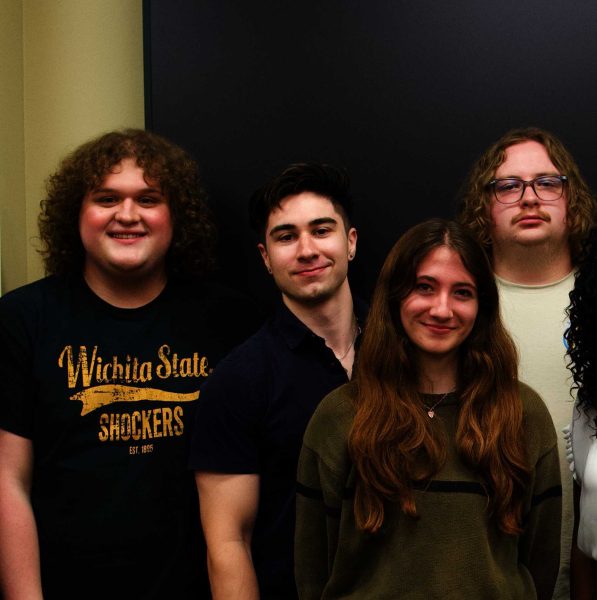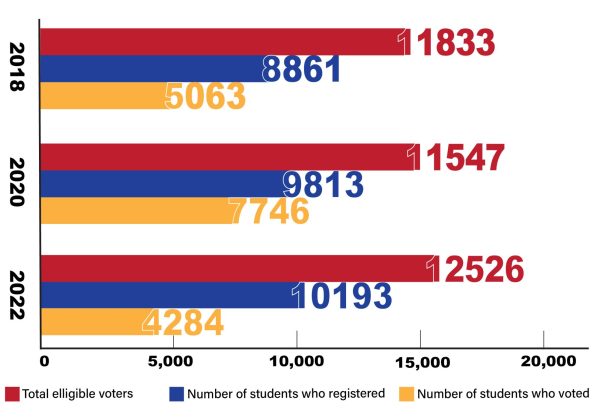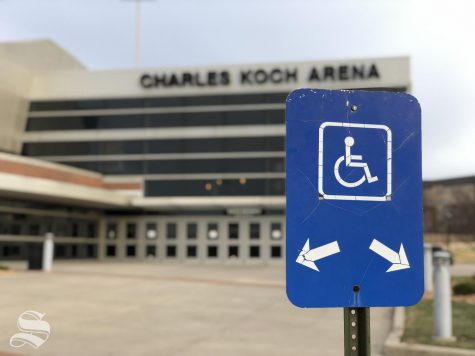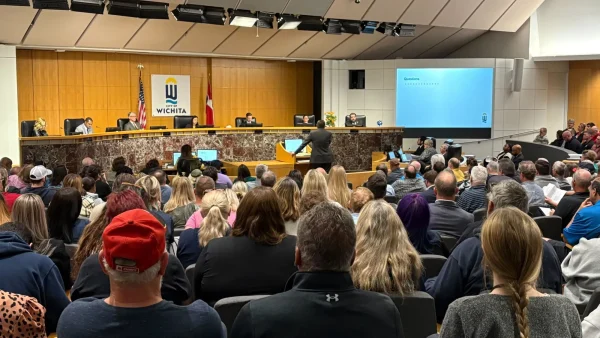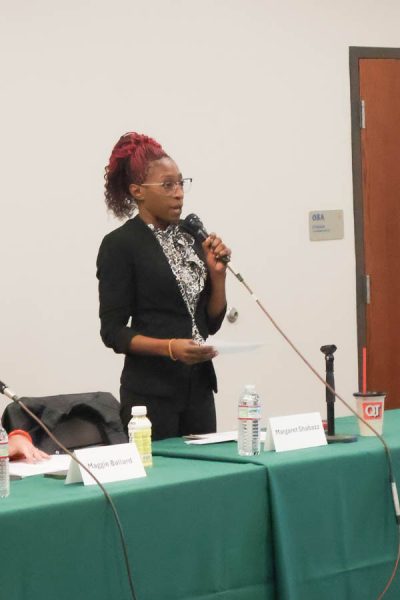Closed searches and budget cuts: Faculty senate address concerns over the presidential departure
Wichita State University’s main campus is known for its multicolored tulips, which bloom every spring.
University Provost and current Acting President Rick Muma spoke to the faculty senate during their meeting Wednesday to address concerns over the sudden resignation of President Jay Golden.
Muma confirmed that he is not a candidate for permanent presidency.
“I don’t know how long I’m going to be in this role. But in it or not, as provost if not, I am committed to open and honest conversations and continuing engagement and shared governance,” Muma said.
Muma said even though the resignation has led to several setbacks for the university, the university’s goal of moving forward hasn’t stopped.
“We are committed to moving forward and not looking in the rearview mirror, I know this is hard right now but I would encourage you to consider this a path,” Muma said.
“We have faced transitions before and I am reminded of the resilience of our entire campus community almost daily as we have adjusted to COVID-19 during these past months.”
Faculty Senate President Aleks Sternfeld-Dunn said that the unknown aspects surrounding the presidential resignation has led to his own personal concerns over the future of the university.
“My greatest worry is for the next person who steps into the permanent role of president at our university,” he said. “I worry that they will be able to effectively and quickly make decisions without a constant fear of losing their job because they have displeased the board, I worry that they will second guess themselves or at each corner for fear of an angry donor.”
Sternfeld-Dunn said the sudden resignation may result in a harder job for the next university president.
“I worry about a taller hurdle of trust that the next president will have to pass with our university community to demonstrate a commitment to shared governance, and not just a commitment to select members of the Wichita State community,” Sternfeld-Dunn said.
Sternfeld-Dunn said that he believes that the resignation will lead to trust issues.
“At a time where we are dealing with significant budget cuts, a pandemic and now a controversial resignation of the university president, the Board of Regents has a responsibility to rebuild the trust with faculty, staff, students and the larger WSU community,” he said.
While the majority of the senate expressed positive attitudes towards Golden’s presidency, Sternfeld-Dunn expressed concerns that everyone wasn’t being heard when it came to Golden’s impact on the university.
“It is important to understand that no human is perfect, I think you are hearing a lot of positives,” Sternfeld-Dunn said. “It would be incorrect and foolish to suggest that there aren’t people who didn’t have a positive experience.”
Closed searches
Members of the senate expressed concerns about the future of the presidential search committee, with many expressing disinterest towards another closed search process.
Political Science Chair Neal Allen said that an open search would not only allow for faculty and student input, but could also prove to be more effective.
“An open search actually could be more effective,”he said. “One of the reasons is it would allow more feedback to the candidates about what kind of institution we are, it would also allow more people to be involved in seeing the candidate working in something like the environment they would be working in.
“An open process is actually a better process and will give us better outcomes.”
When asked if he knew of what the board was thinking, Muma said he was unsure on what direction it would go when it came to the search process.
“The options are a closed or open search. . . the search committee typically has representation from the faculty, staff and students on campus and then community leaders [and] business leaders,” he said. “I would assume that would be the case moving forward.”
Sternfeld-Dunn said he expressed the concerns over the search process to Regents President Blake Flanders.
“I told him that, in my opinion, the board needed to carefully consider an open process versus a closed process because. . . I believe the Board of Regents have to work to sort of rebuild some trust,” Sternfeld-Dunn said.
While Sternfeld-Dunn said that he believed an open search process was better, he understood both sides of the argument.
“It’s interesting to sort of see the privacy that these candidates desire because whenever you’re looking for another position, when that gets out, it does put at risk what your standing is at your current university,” Sternfeld-Dunn said.
Muma encouraged the senate to voice their concerns to the board, who will make the final decision.
“It’s really up to the board … I think it’s a good idea to express these desires to see if there’s a possibility of having them make a different decision going forward,” Muma said.
Budget cuts
Another concern brought to the senate was the idea of having a newly appointed interim president be in charge of the upcoming university budget cuts.
“The role of our interim president will shape us in a period of big budget cuts,” Director of the Elliott School of Communication Jeff Jarman said. “Getting a person who is not accountable because they have not been here and won’t be here afterwards enables them to make decisions that are not necessarily in our long term best interest.”
Jarman said having someone serve as a placeholder could ultimately hurt the university.
“I really think this is a moment where getting a placeholder is not what we need,” Jarman said. “We need somebody who understands where we’ve been, what we’re doing and how to make some of the tough frankly budget decisions.
“The idea that we would bring someone in who has no knowledge of the university and then make cuts … doesn’t sound like what any of us would want.”

Lindsay Smith is the former editor-in-chief and newsletter editor for The Sunflower. Smith was a journalism major at Wichita State with a minor in creative...




